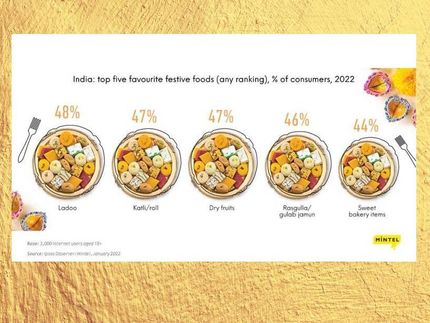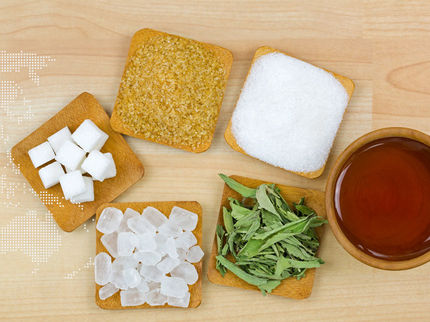Taxing unhealthy food or drink would encourage half of Brits to cut back
-
75% of Brits say easier to understand nutritional information on product packaging would encourage them to reduce unhealthy eating/drinking.

pixabay/congerdesign
Low sugar is the number one factor Brits look for when seeking out healthy food.
57% of British female under-25s say they have unhealthy food/drink because they want to cheer themselves up, compared to 41% of Brits overall.
With the so-called ‘sugar tax’* starting on April 6th, new Mintel research finds just under half (47%) of Brits say that a tax making unhealthy food/drink more expensive would encourage them to cut down on these items.
Those aged 16-34 (53%) are considerably more likely to be deterred by a tax than those aged 45 and over (42%). Meanwhile, by region, Londoners (53%) are most likely to be deterred by a tax; this compares to less than four in ten (38%) consumers living in Scotland.
As an alternative nudge to taxation, three quarters (75%) of consumers say that easier to understand nutritional information on product packaging would encourage them to cut down on unhealthy food/drink, rising to 81% of 25-34s. Meanwhile, 73% claim rewards for making healthy choices (eg supermarket reward points) would encourage healthier eating. Over half (56%) of Brits say they would cut down on unhealthy products if there were tighter restrictions on advertising unhealthy food.
Emma Clifford, Associate Director Food & Drink said:
“Although Brits have ingrained healthy eating intentions and have upped their efforts to cut down on their sugar intake, the majority of British adults are overweight or obese and Britain is ranked the sixth fattest nation in the world. When considering how to encourage more healthy eating using the carrot or the stick approach to motivation, the rewards strategy is seen to hold more sway over consumers’ food choices.”
Low sugar content is single most important factor Brits look for when seeking out healthy food
Low sugar content now stands out as the single most important factor Brits look for when seeking out healthy food. More than half (52%) of Brits say that low sugar content is important when looking for healthy foods, with consumers prioritising low sugar content over 5-a-day claims (48%) and low fat content (45%). Meanwhile, low salt content (42%) and low saturated fat content (39%) make up the other top five factors Brits seek out when looking for healthy food. While Brits remain on sugar alert, just one in three (35%) consumers look for a low calorie count.
Across the generations, foods with low sugar content (62%), salt (53%) and saturated fat (45%) are most attractive for over-55s. The comparatively low level of interest in food with a low sugar (44%), low fat (45%) and low salt (28%) content among younger consumers aged 16-24 is a reflection that this age group is one of the core audiences for snacks such as chocolate, sweets, cakes and crisps.
It seems that a popular way to reduce sugar consumption is educating the palate, as two thirds (66%) of Brits acknowledge that getting used to less sweet flavours is the best way to cut down sugar.
“A war is being waged against sugar by the government and the media. This sustained attack over a number of years has had a big impact on how consumers view this now demonised ingredient, what they think constitutes healthy food and their eating and buying habits. While fat was once the food villain, this crown has now been taken by sugar. This is clearly positive news for inherently non-sweet, low/no sugar products.
“For high-sugar products, the challenge is a complex one, with reformulations a risky business. There have been many cases of consumer backlashes against unpopular recipe changes and the use of artificial sweeteners is not a solution that sits well with all consumers. The use of naturally-derived sweeteners remains in its infancy in the UK, despite many consumers being open to the use of these ingredients.” Emma continues.
Rise in eating healthily most of the time
Encouragingly, over the last two years the proportion of consumers who strive to eat healthily most of the time has risen by 4 percentages points, up from 48% in 2015 to 52% in 2017. Overall, more than six in ten (63%) adults try to eat healthily all or most of the time. Only 11% strive to eat healthily all of the time.
While Brits are heading in the right direction with their diet, 41% admit that wanting to cheer themselves up is likely to push them towards eating or drinking unhealthily, rising to 57% of female under-25s. Just under four in ten (37%) Brits are likely to eat unhealthy food and drink to reward themselves, while a third (33%) stray towards unhealthy food and drink when they are tired.
“It’s encouraging that Brits are making more of an effort to eat more healthily, though they continue to enjoy permissible indulgences. However, there is potential for this overarching healthy eating trend to be undermined by consumers’ incomes being squeezed, together with the perception that healthy food is expensive. Nevertheless, there are still opportunities for retailers to provide more shopper support in making healthier and price-savvy choices, while simultaneously promoting customer loyalty.” Emma concludes.
*Officially known as the Soft Drinks Industry Levy





























































